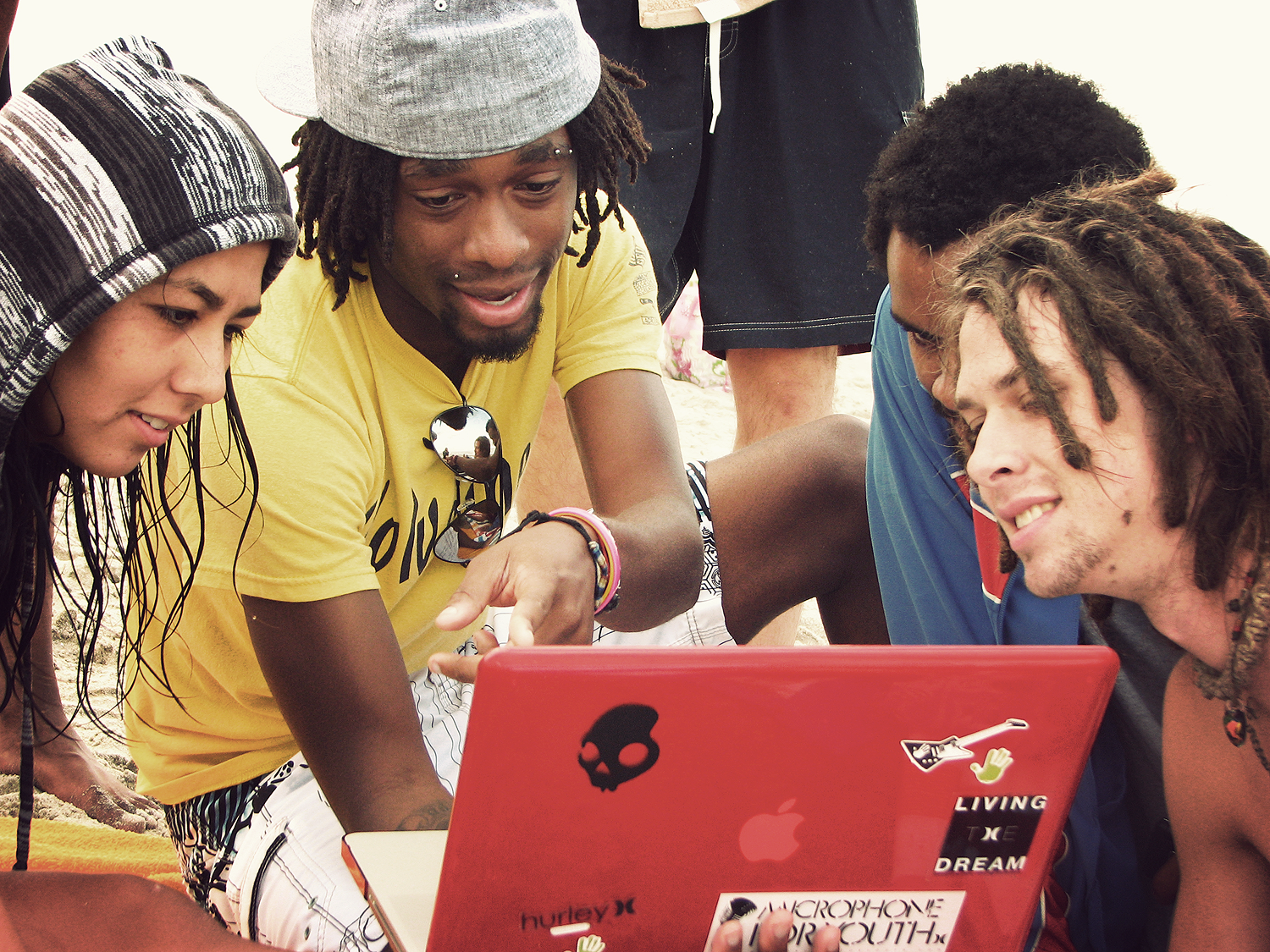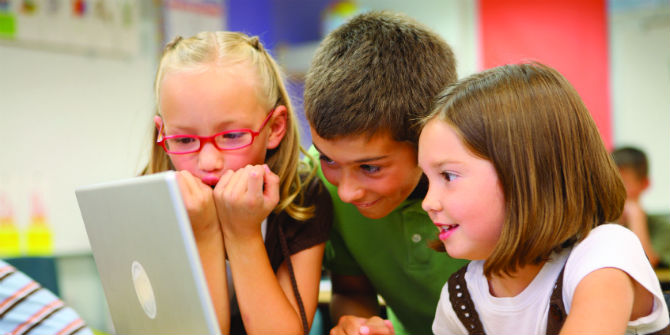 News literacy – having the skills and knowledge to understand and interpet the news and assess the validity of sources – is crucial, but who should be teaching it? In this post, Fran Yeoman of Liverpool John Moores University reflects on the findings of her research with Kate Morris into the role and motivations of media organisations in providing news literacy education in the UK.
News literacy – having the skills and knowledge to understand and interpet the news and assess the validity of sources – is crucial, but who should be teaching it? In this post, Fran Yeoman of Liverpool John Moores University reflects on the findings of her research with Kate Morris into the role and motivations of media organisations in providing news literacy education in the UK.
Ten years ago, scholar Jennifer Fleming posed the question: “Is news literacy an extension of the journalistic commitment to the public good or is it an example of pedagogical public relations?” One response to this could be: can news literacy be both? Another is: if the media’s willingness to help educate citizens about the industry is in part motivated by a desire to re-affirm the value of professional journalism and promote itself as the antidote to information disorder, does that matter, as long as the resultant education is good?
Fleming posed this question during her analysis of the pioneering Center for News Literacy at Stony Brook University in New York, which was the brainchild of former Newsday editor Howard Schneider. She was reflecting on a version of news literacy that was explicitly linked to Schneider’s notion that journalism needed informed news consumers to prosper. Others have suggested that industry involvement in news literacy efforts, whatever the motivation, leads to what Hobbs has called “news appreciation” rather than independently-minded criticality, or could in Buckingham’s terms be compared to “fast food companies teaching children about nutrition”.
Meanwhile, in the UK and elsewhere, industry involvement in news literacy has expanded since 2016 with the launch of programmes such as the Guardian Foundation’s NewsWise, resources like BBC’s Real News and schemes from News UK, the Telegraph and others. Amid declining levels of trust in news and growing levels of news avoidance, concern about mis- and disinformation and the economic challenges facing journalism, major news organisations have either launched their own educational initiatives, such as those mentioned here, or become involved in supporting others, as with for example the Financial Times’ support of The Student View.
A mapping exercise that we conducted in 2021 as a precursor to the detailed case studies discussed here identified 72 news literacy projects aimed at schoolchildren then operating in the UK. Of these, 15% were run by media businesses directly, while 35% involved journalists in at least some delivery.
Such engagement has been welcomed in policymaking circles, including by the UK government’s 2019 review into the future of journalism, The Department for Digital, Culture, Media and Sport (DCMS) said in its media literacy strategy report that it wanted to “encourage the industry to continue this work”. It noted: “Given evidence showing a link between higher media literacy and willingness to pay for news, this work could have positive implications for press sustainability”, again raising the question: what is news literacy for?
What do those on the front line of news literacy efforts in the UK make of industry input?
Our research set out to explore that question as part of a wider British Academy/ Leverhulme-funded research project mapping news literacy education in the UK. This included five case studies, conducted in 2021, of initiatives that delivered news literacy education in schools and all, in different ways, had links to the news media industry. They were:
- BBC Real News (a one-off session then delivered in schools and other settings under the Young Reporter arm of the BBC, focusing on misinformation and distinguishing reliable information).
- The Burnett News Club (A year-long, paid-for programme of work run by the Economist Educational Foundation, since reformatted under the new name Topical Talk)
- Shout Out UK (a London-based social enterprise delivering workshops on news literacy within secondary schools as part of a combined offer with political literacy teaching)
- The Student View (a charity teaching news media and media aimed at secondary school children, offering training in spotting misinformation and basic local reporting skills through ‘pop-up newsrooms’ in schools)
- NewsWise (a 15-lesson unit of work looking at news literacy concepts for 7-11 year-olds, run by the Guardian Foundation in partnership with the National Literacy Trust and the PHSE Association).
Through a series of interviews with project managers, session leaders and teachers in participating schools, as well as observations of sessions, we sought to explore attitudes to industry’s role in this sector.
Findings
What emerged was a complex and nuanced picture. On the one hand, we heard about the importance of differentiating professional journalism from ‘the rest’, and observed pupils being taught the importance of a trusted brand; sessions that at times could be described as what Hobbs called ‘news appreciation’. On the other, we heard from some interviewees that some industry practices have contributed to declining levels of trust in news.
There was an awareness that news literacy is in part about creating news consumers and engaging with young audiences – one participant spoke about rebuilding the value of information being necessary “for the news industry to survive” – and yet also a wariness about being seen to promote particular brands. Another interviewee reflected:
“You’ve got to be so careful that you’re not just either actually promoting one form of journalism or one brand of journalism or saying we’re great, or we’re trustworthy, or that you’re perceived in that way, which can be just as damaging.”
Perhaps the thorniest issue was around which parts of the UK media would be, in the eyes of our interviewees, legitimate actors in the news literacy space. Here, one name came up, unprompted and repeatedly, as an example of a brand that participants would not engage with as a news literacy provider or sponsor: the Daily Mail. In the words of one teacher:
“If it was run by the Daily Mail I wouldn’t be doing it. There you go. I’m going to be honest with you.”
That teacher had chosen to engage with the Guardian Foundation’s NewsWise scheme and was self-consciously a ‘Guardian reader’. As such, her personal antipathy towards the Mail is perhaps unsurprising, but it raises wider questions about the boundaries of ‘acceptable’ industry involvement in this kind of education. If such input is to be welcomed, who gets to decide that any given outlet is excluded from that invitation? Can government, regulators or anyone else be a final arbiter of who can and can’t launch a programme, and what is the potential for politicising the very concept of news literacy by association with particular parts of the industry?
Recommendations
The researchers, both former journalists, do not propose the exclusion of our erstwhile colleagues from educational input. The authentic professional experiences and perspective of working journalists can be a valuable element in educating the wider public about the functions and practices of their industry. Nor do we argue that it is unreasonable that a financially-challenged industry might want to promote its value to potential future audiences.
Rather, we suggest that policymakers and school leaders should be mindful of such motivations when tempted to rely on industry-linked initiatives, which also face other challenges around sustainable funding and limited reach, to deliver news and media literacy education.
Indeed, as we wrote in our recent article, the issue here is broader than the just the media’s role: “Any external provider of an educational initiative that requires funding and resource in terms of staff time is likely to have “skin in the game”, whether that is media organisations who have an understandable motivation to promote the merits of professional journalism rather than a critical approach to news itself, or other funders such as tech companies who might be said to have their own agendas and priorities.”
Ultimately, if a critical understanding of the information ecosystem and journalism’s place within it is considered important to civic engagement and thus to democratic health, it cannot be left to any external actor to set the parameters of that learning, provide sustained funding or eke out classroom time. If a news literacy education is for the good of society, then society, whether through the school curriculum or other means, must find a means of making it available to all.
This article represents the views of the author and not the position of the Media@LSE blog, nor of the London School of Economics and Political Science.





